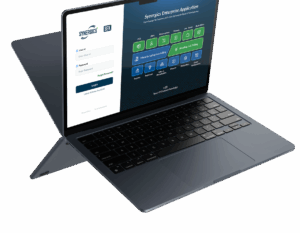In today’s competitive business landscape, understanding the meaning of ERP and CRM systems is essential for companies looking to optimize their operations and enhance customer relationships. These systems are vital tools that help businesses streamline processes, manage resources efficiently, and improve customer satisfaction. This blog will explore the meaning of ERP and CRM systems, their core functions, and the benefits they bring to businesses of all sizes.
What is an ERP System?
To grasp the meaning of ERP systems, it’s important to know that ERP stands for Enterprise Resource Planning. An ERP system is an integrated software platform used to manage and automate core business processes. These processes include finance, supply chain, manufacturing, services, procurement, and others. By centralizing data from various departments, ERP systems provide a unified view of business operations, enabling better decision-making and increased efficiency.
Key Features of ERP Systems:
- Centralized Database: ERP systems store all business data in a single, centralized database, ensuring data consistency and reducing errors.
- Automation: Automating routine tasks such as payroll, inventory management, and order processing helps in reducing manual effort and minimizing errors.
- Real-Time Information: ERP systems provide real-time insights into various business processes, helping managers to make informed decisions quickly.
- Scalability: As your business grows, ERP systems can scale to accommodate new processes and additional data.
What is a CRM System?
Understanding the meaning of CRM systems is equally crucial. CRM stands for Customer Relationship Management. A CRM system is designed to manage a company’s interactions with current and potential customers. It centralizes customer information, tracks interactions, and supports sales management, customer service, and marketing efforts. The ultimate goal of a CRM system is to improve customer satisfaction and loyalty by providing a personalized experience.
Key Features of CRM Systems:
- Customer Data Management: CRM systems store detailed information about customers, including contact details, purchase history, and communication preferences.
- Sales and Lead Tracking: CRM systems help sales teams track leads through the sales funnel, from initial contact to conversion.
- Marketing Automation: Automate marketing tasks like email campaigns, social media posts, and customer segmentation to enhance marketing efficiency.
- Customer Support: CRM systems offer tools to manage customer inquiries, support tickets, and service requests, ensuring prompt and effective responses.
ERP and CRM Systems Meaning: Key Differences
While both ERP and CRM systems are designed to improve business efficiency, they focus on different aspects of the business.
- Scope: ERP systems are more comprehensive, focusing on the internal processes of a business, while CRM systems are more customer-centric, focusing on managing customer relationships.
- Primary Users: ERP systems are generally used by various departments within an organization (finance, HR, supply chain), whereas CRM systems are primarily used by sales, marketing, and customer service teams.
- Objective: The primary objective of an ERP system is to improve the efficiency of business processes, while a CRM system aims to enhance customer satisfaction and drive sales.
Why Your Business Needs Both ERP and CRM Systems
For businesses to thrive, understanding the meaning of ERP and CRM systems and how they complement each other is critical. While ERP systems streamline internal operations, CRM systems enhance customer interactions. When used together, they provide a comprehensive solution that supports business growth and customer satisfaction.
Benefits of Integrating ERP and CRM Systems:
- Improved Data Accuracy: Integrating ERP and CRM systems ensures that both internal and customer-facing teams have access to accurate and up-to-date information.
- Enhanced Customer Experience: By combining the operational efficiency of ERP systems with the customer-focused features of CRM systems, businesses can offer a seamless customer experience.
- Streamlined Operations: Integration reduces data silos, enabling smoother operations and better collaboration across departments.
- Better Decision-Making: With access to holistic data, managers can make better-informed decisions that align with both business goals and customer needs.
Conclusion
Understanding the meaning of ERP and CRM systems is vital for any jewelry business aiming to stay competitive in today’s market. While ERP systems focus on optimizing internal operations such as inventory and supply chain management, Jewelry CRM Software is designed to build and maintain strong customer relationships tailored to the jewelry industry. Together, they form a powerful duo that can drive business success by improving operational efficiency, enhancing customer satisfaction, and ultimately boosting profitability. Whether you run a small boutique or a large jewelry enterprise, investing in both a robust ERP system and specialized Jewelry CRM Software will position your company for long-term success.











